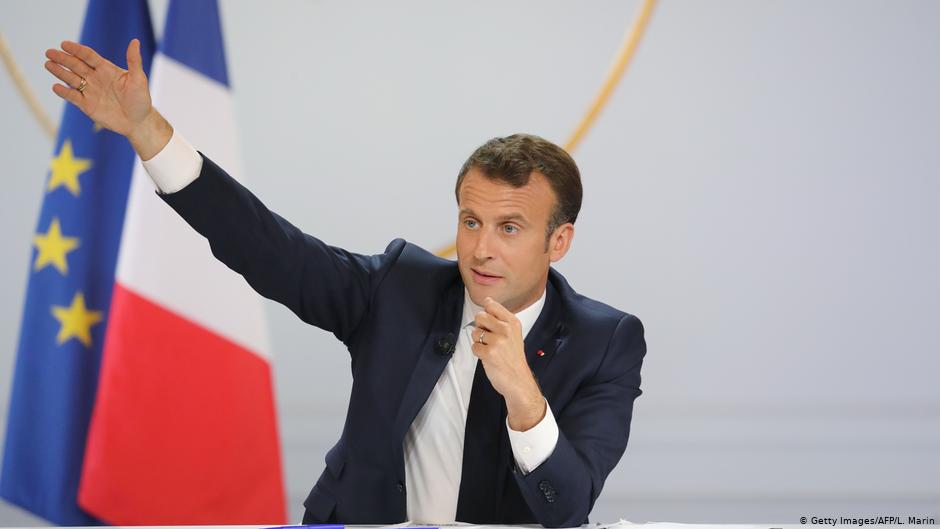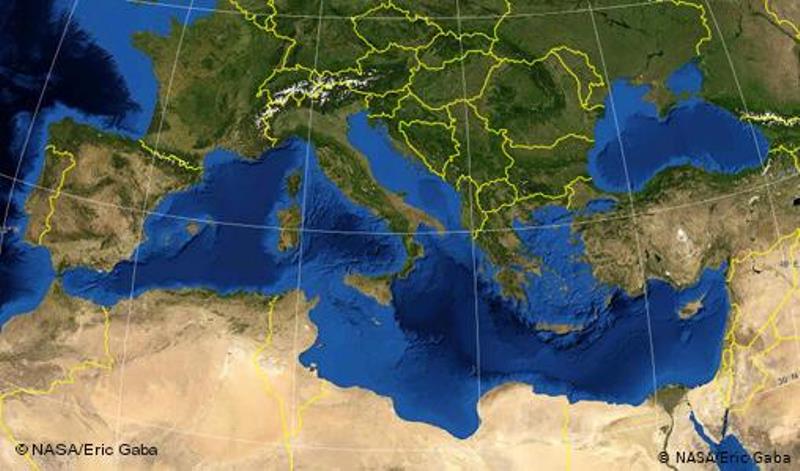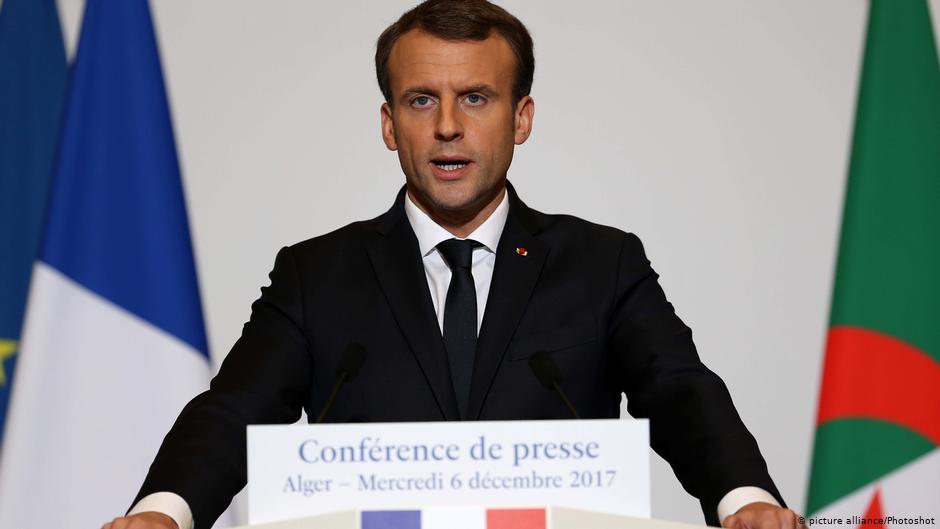A G10 summit marked by pragmatism

On 23 and 24 June 2019 the heads of state or government of the southern European countries of France, Italy, Spain, Malta and Portugal, as well as the North African countries of Tunisia, Morocco, Algeria, Libya and Mauritania, will convene in Marseille for a summit in the so-called 5+5 format.
Representatives from the European Union and Germany are also invited, as well as international donor organisations including the World Bank, the European Investment Bank (EIB), the Organisation for Economic Cooperation and Development (OECD), and the European Bank for Reconstruction and Development (EBRD). The Union for the Mediterranean (UfM) and the Anna Lindh Foundation (ALF) will also be there.
The last major French Mediterranean initiative gave rise in 2007/2008 to the "Union for the Mediterranean" (UfM), which has not generated any notable results, apart from a few ministerial meetings and forums for dialogue. Macron would like to change that now. The goal of his initiative is to use the 5+5 format that has existed since 1990 for more in-depth, practice- and project-oriented co-operation in five areas, launching a sort of "Mediterranean G10" in the Mediterranean inner circle.
Presenting the Mediterranean as a region of intercultural exchange
So far, the 5+5 talks have revolved mainly around security and migration issues. In future, co-operation is to focus on energy policy, the economy and competitiveness, on youth and education, on the environment and sustainable development, and on culture, tourism and the media.
To prepare for the summit, Algeria, Morocco, Malta, Italy and France each organised a themed forum to address the aforementioned areas and draft initial concrete project proposals. These were presented in Tunis on 11 and 12 June 2019 with a "100 Appeal" by 100 civil society organisations and will be brought forward again at the Marseille summit.
A positive aspect of the new Mediterranean initiative is – at least at first glance – its multilateral and inclusive approach: in these times of populist-nationalist influence, when the Mediterranean Sea is primarily perceived as a border and moat of the fortress of Europe, not to mention a graveyard where tens of thousands of refugees have lost their lives, it is good to see that the idea of the Mediterranean as a region of intercultural exchange, with a shared history and future and common challenges to be faced, is still alive.

The Maghreb: a future partner on equal terms
The initiative must also be understood against the backdrop of the internal political situation in France. In the European elections, the extreme-right "Rassemblement National" won 23.3 percent of the vote. The initiative seeks to counter their right-wing isolationist rhetoric with a reconciliation-friendly alternative concept that does not cast the Maghreb as a danger and a threat for Europe, but as a future equal partner and bridge to the African continent. A further positive aspect is the attempt to bring new dynamism to the stagnant Mediterranean co-operation via the UfM, which has little to show for itself in terms of concrete results.
Regardless of this, the EU stoically pursues its policy of bilateral free trade agreements in the southern and eastern Mediterranean, while the individual EU member states are occupied with bilateral repatriation agreements.
The Maghreb: a future partner on equal terms
The initiative must also be understood against the backdrop of the internal political situation in France. In the European elections, the extreme-right "Rassemblement National" won 23.3 percent of the vote. The initiative seeks to counter their right-wing isolationist rhetoric with a reconciliation-friendly alternative concept that does not cast the Maghreb as a danger and a threat for Europe, but as a future equal partner and bridge to the African continent. A further positive aspect is the attempt to bring new dynamism to the stagnant Mediterranean co-operation via the UfM, which has little to show for itself in terms of concrete results.
Regardless of this, the EU stoically pursues its policy of bilateral free trade agreements in the southern and eastern Mediterranean, while the individual EU member states are occupied with bilateral repatriation agreements.

To what extent these 100 representatives can address the concerns, problems and hopes of North Africa's civil societies is an open question. The focus on the western Mediterranean countries does make a "Mediterranean G10" more capable of action, but ignores the fact that central challenges in the region – such as pollution, migration and terrorism – must be addressed by all the Mediterranean countries together.
The problem is that this French push overrides existing formats for European policy in the Mediterranean – the Union for the Mediterranean (UfM), European Neighbourhood Policy (ENP), Common Foreign and Security Policy (CFSP) – even going so far as to overturn them.
This will not succeed, however, since resistance is already building in Brussels. Similar problems arose back in 2007, when Nicolas Sarkozy wanted to start a "Mediterranean Union" without a majority of the EU member states. After the dispute between Merkel and Sarkozy, a compromise was made at the time with the "Barcelona Process: Union for the Mediterranean", whereupon the decision-making power and financial authority over Mediterranean policy remained in Brussels and the role of the UfM Secretariat in Barcelona was reduced to that of a penniless token label.
This solution is still met with bitterness and a lack of understanding on the part of many French observers and parliamentarians today. The fact that the UfM is left to struggle with a lack of common goals and with disinterest and disagreement among the (partly autocratically ruled) 43 members, as well as the transformed political context, is ignored.
Toward a "variable geometry" in European foreign policy
Although the UfM and the EU have been invited to the summit in Marseille, it remains unclear how a "Mediterranean G10" can be situated within the context of the UfM and ENP. Not only the EU Commission is critical of Macron’s initiative; Berlin has yet to signal that it will create any new institutions or structures to support it. Chancellor Merkel is nonetheless expected to participate in Marseille. It remains to be seen how other, non-invited, states in the MENA region or bordering EU member states (e.g., Sweden, Finland, Greece) will respond to the initiative.
The political context for France's new Mediterranean initiative is also rather fraught in view of current developments in Libya and Algeria. The initiative might be supported as a step toward a "variable geometry" or "reinforced co-operation" in European foreign policy , but then all EU member states would have to be free to decide whether they want to join a Mediterranean group of like-minded nations or not.
In its current form, the ostensibly inclusive approach has in fact displayed a highly exclusive character vis-a-vis the other EU member states and the rest of the UfM members. Macron is seen as a reformer in Europe and yet he is attempting to re-assert France's leadership role in the Mediterranean.
If he fails to include the others, i.e., the critical Euro-Mediterranean civil societies, the EU Commission, like-minded EU member states and the Arab governments, he is hardly likely to succeed in sustainably implementing his plans. So far, the concept has consisted primarily of coming up with even more new interesting projects to be financed by international donors, the EU and Germany.
The already existing abundance of short-term projects and programmes and their tendency to compete or overlap with each other limits their effectiveness and visibility. Grouping, prioritising and creating a transparent selection of these would make sense. In principle, the initiative is certainly welcome, but so far it is nothing more than a new impulse.
Isabel Schafer
© Qantara.de 2019
Translated from the German by Jennifer Taylor
